
Find Help
More Items From Ergsy search
-

How can concussions be prevented?
Relevance: 100%
-

Is there any way to prevent concussions?
Relevance: 100%
-
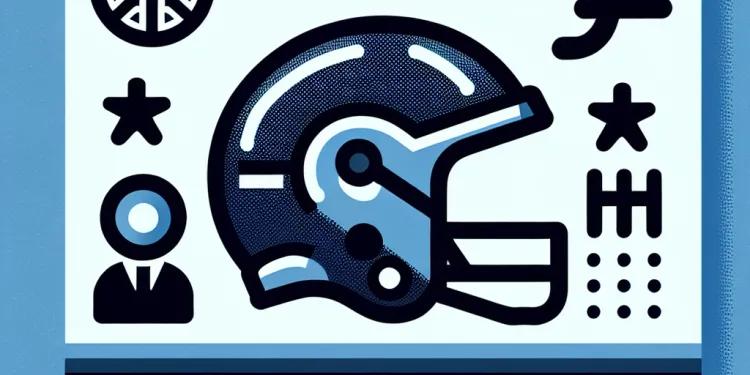
How can concussions be prevented?
Relevance: 100%
-

How can concussions be prevented in rugby?
Relevance: 95%
-
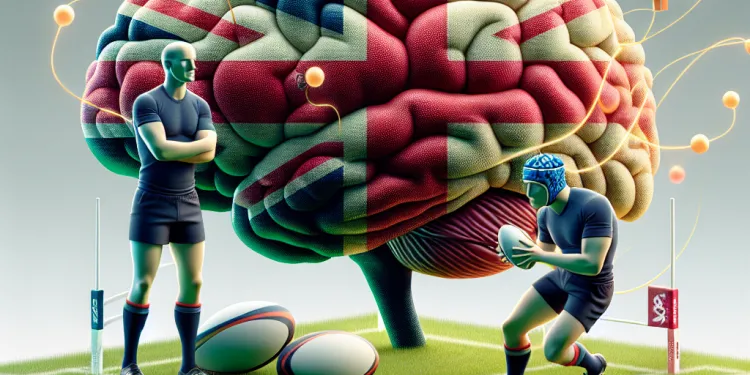
Are helmets required in rugby to prevent concussions?
Relevance: 95%
-
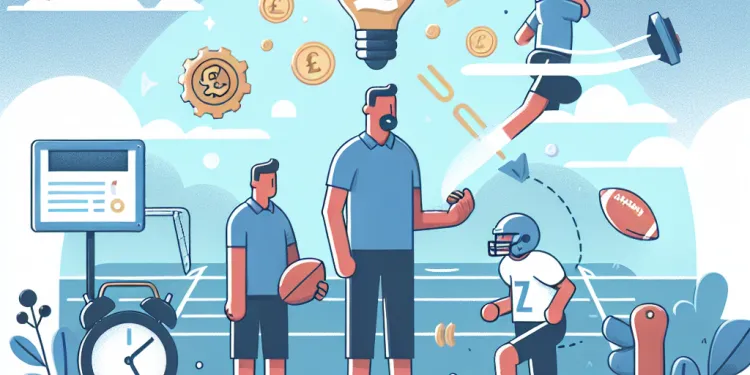
Is training available for coaches to help prevent concussions?
Relevance: 92%
-

What is Concussion?
Relevance: 83%
-
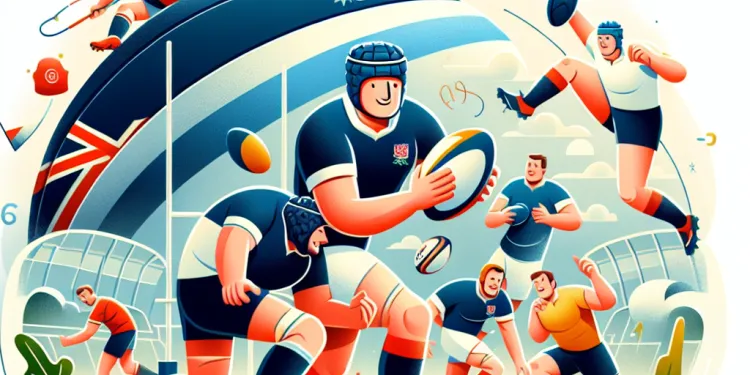
Are Concussions common in Rugby?
Relevance: 78%
-
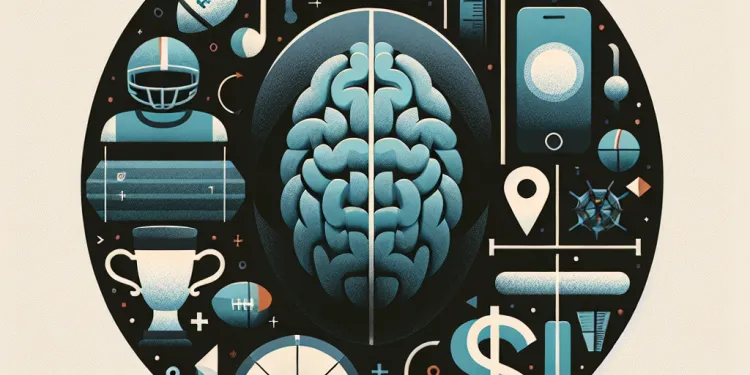
What causes concussions in rugby?
Relevance: 76%
-
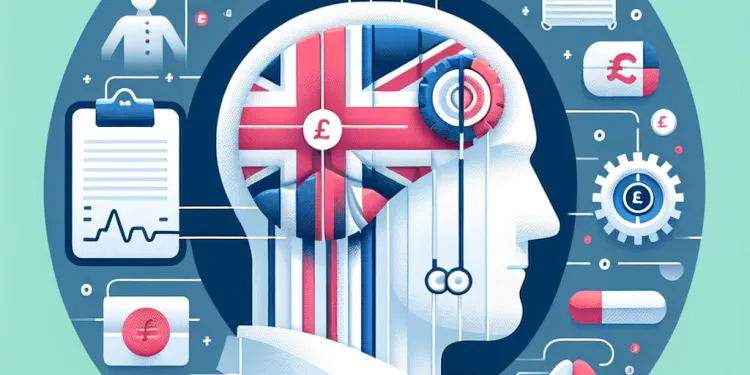
How is a concussion diagnosed?
Relevance: 74%
-

Is headache a symptom of a concussion?
Relevance: 74%
-
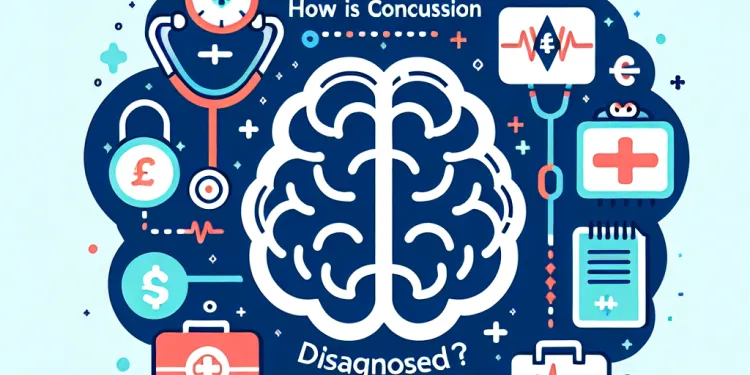
How is a concussion diagnosed?
Relevance: 73%
-

Can playing sports increase the risk of a concussion?
Relevance: 72%
-
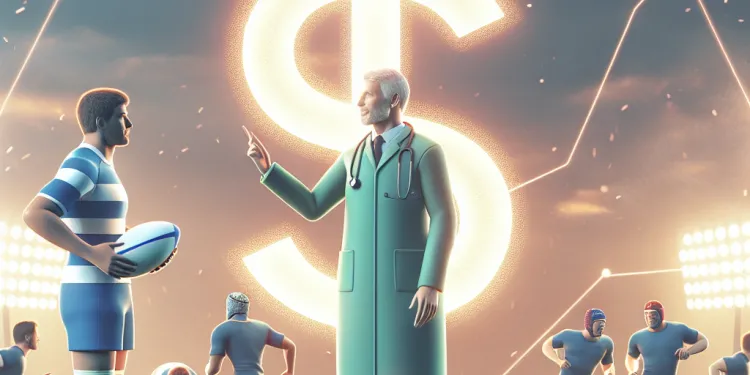
Is there a protocol for managing concussions in rugby?
Relevance: 71%
-
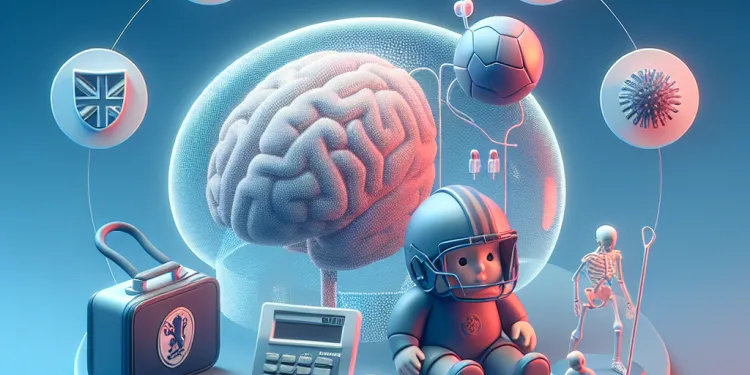
Are children more susceptible to concussions than adults?
Relevance: 70%
-

Can concussions lead to mental health issues?
Relevance: 70%
-
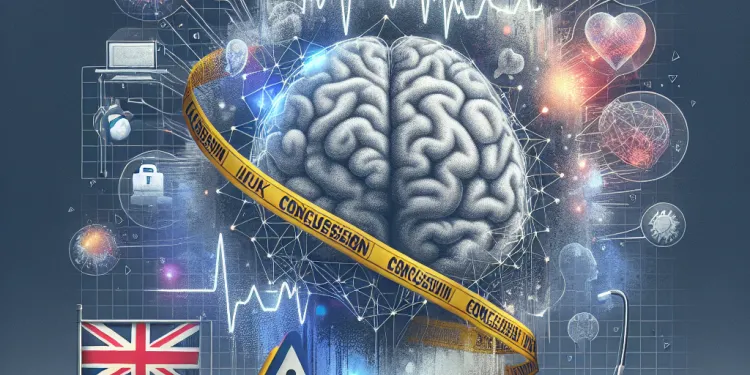
Can a concussion cause memory problems?
Relevance: 70%
-

Is it safe to sleep after a concussion?
Relevance: 70%
-
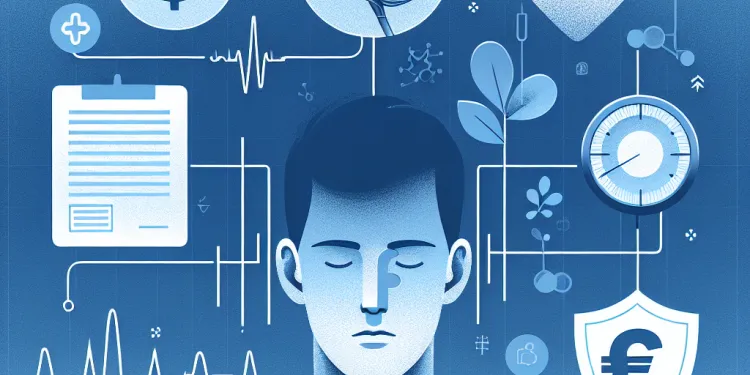
What are common symptoms of a concussion?
Relevance: 70%
-

What role do schools play in managing concussions?
Relevance: 69%
-

Is there a difference in concussion rates between amateur and professional rugby?
Relevance: 69%
-

Is it safe to sleep after a concussion?
Relevance: 69%
-

Can concussions occur without a direct blow to the head?
Relevance: 67%
-
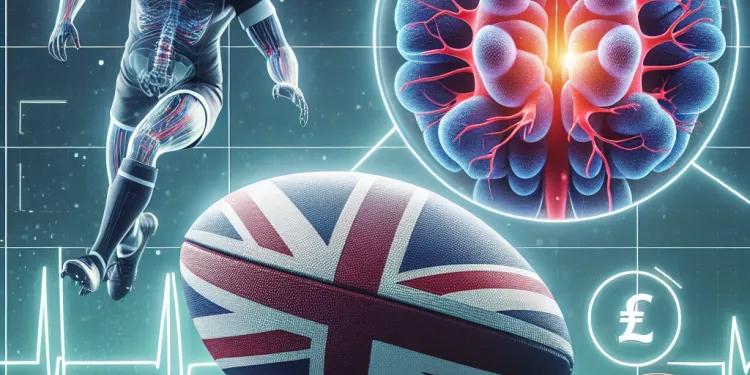
How do concussions impact long-term health in rugby players?
Relevance: 67%
-
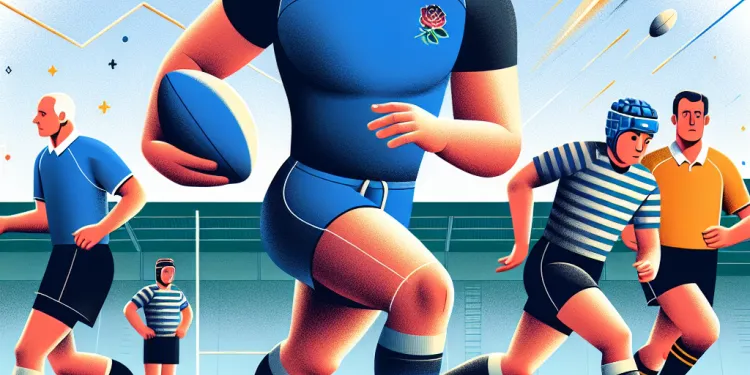
What age groups are most at risk for concussions in rugby?
Relevance: 66%
-

Can players return to play on the same day after a suspected concussion?
Relevance: 65%
-
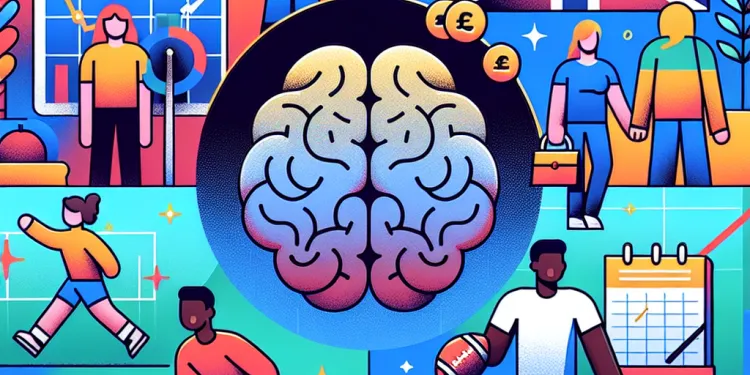
When is it safe to return to normal activities after a concussion?
Relevance: 65%
-

What support is available for rugby players who suffer concussions?
Relevance: 64%
-

Should people with a concussion avoid screens and technology?
Relevance: 64%
-
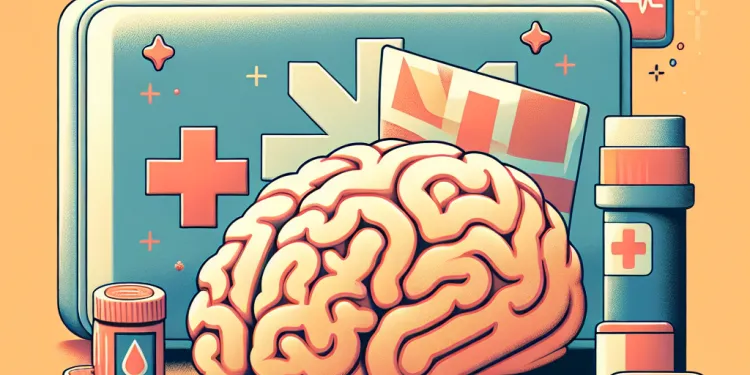
What immediate steps should be taken if someone has a concussion?
Relevance: 63%
-

When is it safe to return to normal activities after a concussion?
Relevance: 61%
-
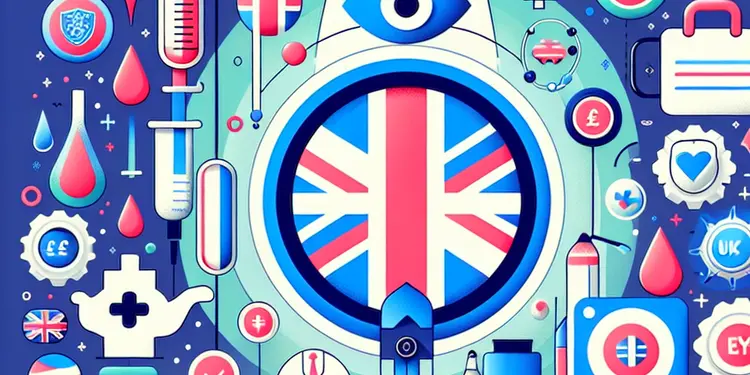
Can hypotony be prevented?
Relevance: 32%
-
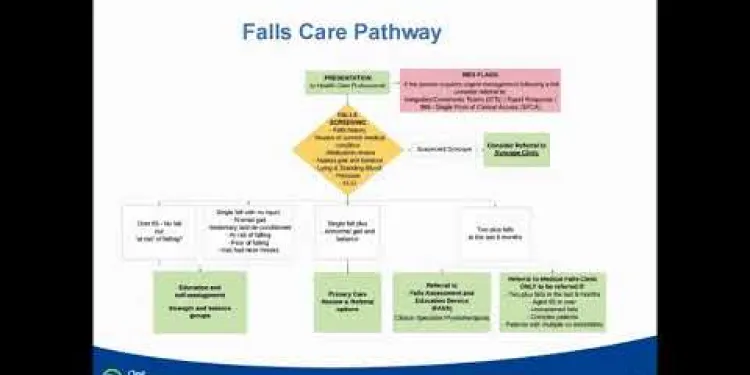
Falls Prevention Podcast
Relevance: 32%
-

Can CFS be prevented?
Relevance: 32%
-

Can meningitis be prevented?
Relevance: 32%
-

Can gonorrhoea be prevented?
Relevance: 32%
-
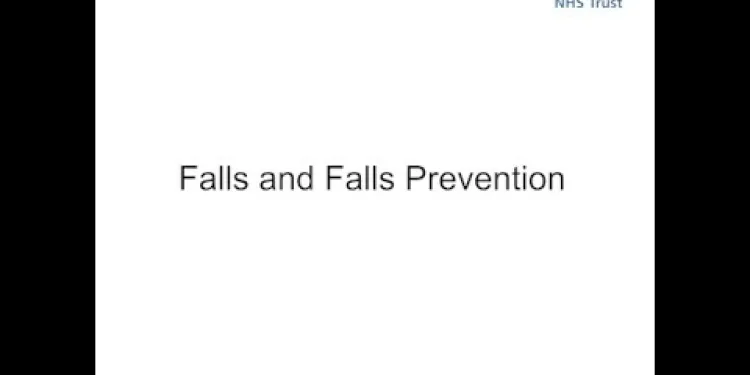
Falls and Falls Prevention
Relevance: 32%
-

Can chickenpox be prevented?
Relevance: 32%
-

Can Rubella be prevented?
Relevance: 31%
-

Can sunburn be prevented?
Relevance: 31%
Preventing Concussions
Concussions are a form of traumatic brain injury that can occur due to a blow to the head or body, causing rapid movement of the brain within the skull. They are common in sports, falls, and accidents. Preventing concussions requires a multi-faceted approach, particularly for athletes, children, and individuals engaged in high-risk activities. Here’s how concussions can be effectively prevented.
Promoting Safe Sports Practices
One of the primary areas for preventing concussions is in sports, where adherence to safe practices is crucial. Coaches and trainers should focus on teaching athletes proper techniques, especially in contact sports like rugby and football. Educating athletes on the importance of playing by the rules reduces the risk of dangerous play.
Additionally, enforcing strict penalties for dangerous and reckless actions can deter behaviors that lead to concussions. Implementing rules to limit full-contact practice sessions in sports like American football can also minimize the risk of head injuries.
Using Protective Gear
Wearing appropriate protective gear is vital in preventing concussions. Helmets, when used correctly, provide a level of protection for activities such as cycling, skateboarding, and contact sports. It’s essential that helmets fit properly and are well-maintained to ensure maximum effectiveness.
Beyond helmets, using mouthguards, though primarily for oral protection, can sometimes help absorb shock and reduce the risk of concussion in sports such as rugby and hockey.
Education and Awareness
Raising awareness about the symptoms and risks of concussions is critical. Schools and sports clubs should offer educational sessions for athletes, parents, and coaches on recognizing signs of concussion and understanding the importance of immediate and appropriate response.
Understanding that concussions need serious attention and that continuing to play with a concussion can lead to more severe injuries is crucial for all involved.
Safety in Everyday Activities
Preventing concussions extends beyond sports. Ensuring home environments are safe, especially for children and the elderly, can prevent falls, a leading cause of concussions. Installing safety gates, securing rugs, and using non-slip mats can reduce risks in the home.
For cyclists, obeying traffic rules, using lights and reflective clothing in low-light conditions, and being aware of surroundings are additional measures to prevent accidents.
Conclusion
Preventing concussions involves a combination of safe practices, education, and appropriate use of protective equipment. By taking these proactive measures, risks can be significantly reduced, promoting a safer environment for everyone, both in sports and daily life. In the UK and beyond, awareness and action are key to minimizing the impact of concussions.
Preventing Head Injuries
Head injuries, called concussions, happen when your brain gets knocked around inside your head. This can happen in sports, falls, or accidents. To stop concussions, we need to be careful, especially with kids, athletes, and in activities where accidents can happen. Here’s how we can stop head injuries.
Safe Sports Tips
In sports, we need to be extra careful. Coaches and trainers should teach players how to play safely. This is really important in sports like rugby and football where players might bump into each other. Following the rules keeps everyone safe.
Also, if someone plays in a dangerous way, there should be strict rules to stop them. We can also have fewer rough practice times to help protect players’ heads in sports like American football.
Wearing Safety Gear
Wearing the right safety gear is important. Helmets help protect your head when you’re riding bikes, skateboarding, or playing contact sports. It’s important that helmets fit well and are kept in good shape to work properly.
Besides helmets, wearing mouthguards can also help absorb shocks and protect your head in sports like rugby and hockey.
Learning and Being Aware
Knowing about head injuries and their signs is very important. Schools and sports clubs should teach players, parents, and coaches how to spot when someone has a concussion and why they need help right away.
Concussions are serious, and playing while having one can make things much worse. Everyone needs to know this.
Everyday Safety
We need to be safe at home too, not just in sports. Keeping homes safe for kids and older people can stop accidents. Use safety gates, secure rugs, and put non-slip mats in slippery places to make homes safer.
For people riding bikes, it’s important to follow traffic rules, use lights at night, wear bright clothes, and watch what’s around them to avoid accidents.
Conclusion
Stopping head injuries means we need to be careful, learn about risks, and use the right safety gear. By doing these things, we can make everyone safer at sports and in daily life. In the UK and everywhere else, knowing and doing the right things can help reduce head injuries.
Frequently Asked Questions
What are some general tips to prevent concussions during sports?
To prevent concussions during sports, always wear appropriate and properly fitted protective gear, follow safety rules, and ensure proper training and techniques are taught.
Why is wearing a helmet important in preventing concussions?
Wearing a helmet can help absorb the impact force on the head, reducing the risk of a concussion, especially in sports like cycling, rugby, and horse riding.
How can schools ensure the safety of students to prevent concussions?
Schools can ensure student safety by providing proper equipment, training staff in concussion awareness, and establishing a protocol for handling head injuries.
Are there specific exercises that can help in preventing concussions?
Strengthening neck and core muscles can potentially reduce the risk of concussions by stabilising the head and reducing whiplash during impacts.
How does teaching proper techniques in sports contribute to concussion prevention?
Proper techniques, such as tackling and heading in football, can help minimise the risk of head impacts and consequently prevent concussions.
What role does sportsmanship play in preventing concussions?
Good sportsmanship can reduce aggressive and reckless behaviour during sports, lowering the likelihood of head injuries and concussions.
Are mouthguards effective in preventing concussions?
While mouthguards mainly protect the teeth, they can also help absorb shock and reduce jaw injuries, potentially lowering the risk of concussions.
How can pitch conditions affect the risk of concussions?
Playing fields should be well-maintained to prevent tripping hazards and reduce the risk of players falling awkwardly, which can result in concussions.
Why is it important to follow rules and regulations in sports for concussion prevention?
Rules and regulations are designed to ensure fair and safe play, reducing actions that could lead to head injuries and concussions.
Can limiting the frequency of contact drills in training help prevent concussions?
Yes, limiting contact drills and incorporating rest periods can help reduce repetitive head impacts and lower the risk of concussions.
How does player education and awareness contribute to preventing concussions?
Educating players about the signs of concussions and the importance of reporting injuries can lead to timely interventions and better prevention strategies.
Is it true that certain playing techniques can reduce the risk of concussions?
Yes, certain techniques like safe tackling in rugby can reduce the risk of head-to-head contact and thereby lower concussion risk.
How does proper rest between games and training affect concussion prevention?
Adequate rest allows the brain to recover from minor impacts and fatigue, which can help prevent concussions during subsequent games or training.
Should children avoid certain sports to prevent concussions?
Rather than avoiding sports, children should be encouraged to play safely with appropriate protective gear and under proper supervision to minimise concussion risks.
Why is enforcing age-appropriate practices important in preventing concussions?
Enforcing age-appropriate practices ensures that young players engage in activities suitable for their development, reducing the risk of injuries like concussions.
How can you stay safe from head injuries when playing sports?
Here are some tips to help you stay safe:
- Wear a Helmet: Always wear a helmet when playing sports where there's a risk of hitting your head.
- Play Safely: Follow the rules of the game and listen to your coach.
- Be Aware: Watch out for other players and keep your surroundings in mind.
- Strengthen Your Neck: Strong neck muscles can help protect your head. Ask for exercises to make your neck stronger.
- Take Breaks: Rest is important. Don't play when you are tired.
Use pictures or videos to learn more about staying safe. Ask for help if you don't understand something.
To stay safe from head injuries in sports, always wear the right safety gear that fits well. Follow the rules of the game, and make sure you learn the proper way to play.
Why is it important to wear a helmet?
Wearing a helmet keeps your head safe. It helps stop you from getting hurt if you fall or have an accident.
If you hit your head, it can cause a concussion, which is a type of brain injury. A helmet can help protect you from this.
When riding a bike or playing sports, wearing a helmet is smart. It makes sure your head is safer.
You can ask an adult to help you fit your helmet correctly. There are videos online that show how to do this too.
Wearing a helmet can help keep your head safe. It absorbs the force if you hit your head. This lowers the chance of getting hurt. It’s very important in sports like cycling, rugby, and horse riding.
How can schools keep students safe from getting head injuries?
Schools can help keep students safe by doing a few important things. Here's how:
- Teach students to play safely in sports and games.
- Make sure students wear helmets during sports like biking or football.
- Have rules to keep sports safe, like playing fair and not being too rough.
- Train teachers and coaches to watch for signs if a student gets hurt.
- If a student hits their head, make sure they see a doctor.
Using pictures and videos can also help students learn about safety. These tools make it easier to understand how to stay safe.
Schools can keep students safe by doing these things:
- Give the right safety gear.
- Train teachers and staff about head injuries.
- Have a plan for when someone gets hurt in the head.
What exercises can help stop concussions?
Making your neck and tummy muscles stronger can help keep your head safe. This means you might not get hurt as easily if you bump your head.
How can learning the right way to play sports help stop head injuries?
Learning the right way to play sports can keep our heads safe. Coaches teach players how to move safely. This can stop bangs to the head.
When players know the right moves, they are less likely to get hurt. Coaches can show safe ways to play. Helmets and pads also help keep players safe.
Try using videos and pictures to learn the best ways to play. Practicing often makes playing safer and more fun!
Playing football safely can help protect your head. Using the right way to tackle and head the ball can stop you from getting hurt and getting a concussion.
How does being fair and kind in sports help stop head injuries?
Playing fair in sports can help stop people from acting angry or wild. This means there are fewer chances of getting hurt in the head.
Do mouthguards help stop head injuries?
Mouthguards are like soft shields for your teeth. They keep your teeth safe. They also help protect your jaw by stopping hard hits from hurting you too much. This can help keep your head safe, too, and might even stop you from getting hurt in your brain.
How can the ground affect head injuries in sports?
When you play sports, the ground can be soft or hard. This can change how safe it is.
If the ground is very hard, like concrete, it can hurt more if you fall and hit your head. This can cause a head injury called a concussion.
If the ground is softer, like grass or sand, it can be safer. This is because it can make a fall hurt less.
To stay safe, wear a helmet if you need one when playing sports. You can also fall in a way that protects your head.
Playing fields need to be kept in good shape. This helps stop people from tripping and falling. If the ground is bumpy or messy, players can fall and get hurt.
Why should we follow rules in sports to prevent head injuries?
In sports, following rules helps keep everyone safe. Rules make sure everyone plays fair and avoids getting hurt.
Head injuries can happen if we don't follow the rules. These are called concussions.
Concussions are bad for our brains.
Wearing helmets and using soft mats are good ways to stay safe.
Rules and guidelines help make sure games are fair and safe. They try to stop things that might cause head hurts and concussions.
Can doing fewer contact drills in training help stop concussions?
Yes, doing fewer contact drills and taking breaks can help lower the chances of head injuries and concussions.
How can teaching players and helping them learn stop head injuries?
It is important to teach players how to spot signs of a head injury. Knowing why they should tell someone about their injury is also important. This helps players get help quickly and stops more injuries from happening.
Can some ways of playing help stop head injuries?
Yes, playing rugby safely can help keep players from getting hurt. One way to do this is by learning how to tackle safely. This can help stop head bumps and lower the chance of getting a concussion.
Why is rest important between games and training to help stop concussions?
Resting between games and training can help stop head injuries like concussions. When you rest, your brain and body have time to get better. This makes you stronger and safer when you play again.
Some helpful tips for resting are:
- Sleep well at night.
- Take breaks when you feel tired.
- Talk to a coach or adult if you feel dizzy or have a headache.
Getting enough sleep helps your brain get better from small bumps and tiredness. This can help stop head injuries when you play or practice sports.
Is it better for kids to skip some sports to stay safe and avoid head injuries?
Head injuries can happen in some sports. These are called concussions. A concussion is when you hurt your head, like a big bump. It's important for kids to be safe when they play.
Kids should wear safety gear, like helmets, when playing sports to protect their heads.
If you're worried, you can talk to a doctor or coach about which sports are safe for your child.
Instead of staying away from sports, kids should be helped to play safely. They should wear the right safety gear and be watched by an adult. This helps keep them safe and lowers the chance of head injuries.
Why is it important to use the right practices for different ages to stop head injuries?
It is important to keep kids safe by doing the right things for their age. This helps stop head injuries like concussions.
Using the right rules and gear for different ages can keep everyone safe. It makes sure that kids play safely and don't get hurt.
You can use tools like helmets and follow easy rules to help protect kids from getting hit on the head.
Adults can help by watching and making sure kids use the right safety gear when playing sports.
Making sure young players do activities that match their age helps them stay safe and avoid getting hurt, like having a head bump.
Useful Links
This website offers general information and is not a substitute for professional advice.
Always seek guidance from qualified professionals.
If you have any medical concerns or need urgent help, contact a healthcare professional or emergency services immediately.
Some of this content was generated with AI assistance. We’ve done our best to keep it accurate, helpful, and human-friendly.
- Ergsy carfully checks the information in the videos we provide here.
- Videos shown by Youtube after a video has completed, have NOT been reviewed by ERGSY.
- To view, click the arrow in centre of video.
- Most of the videos you find here will have subtitles and/or closed captions available.
- You may need to turn these on, and choose your preferred language.
- Go to the video you'd like to watch.
- If closed captions (CC) are available, settings will be visible on the bottom right of the video player.
- To turn on Captions, click settings .
- To turn off Captions, click settings again.
More Items From Ergsy search
-

How can concussions be prevented?
Relevance: 100%
-

Is there any way to prevent concussions?
Relevance: 100%
-

How can concussions be prevented?
Relevance: 100%
-

How can concussions be prevented in rugby?
Relevance: 95%
-

Are helmets required in rugby to prevent concussions?
Relevance: 95%
-

Is training available for coaches to help prevent concussions?
Relevance: 92%
-

What is Concussion?
Relevance: 83%
-

Are Concussions common in Rugby?
Relevance: 78%
-

What causes concussions in rugby?
Relevance: 76%
-

How is a concussion diagnosed?
Relevance: 74%
-

Is headache a symptom of a concussion?
Relevance: 74%
-

How is a concussion diagnosed?
Relevance: 73%
-

Can playing sports increase the risk of a concussion?
Relevance: 72%
-

Is there a protocol for managing concussions in rugby?
Relevance: 71%
-

Are children more susceptible to concussions than adults?
Relevance: 70%
-

Can concussions lead to mental health issues?
Relevance: 70%
-

Can a concussion cause memory problems?
Relevance: 70%
-

Is it safe to sleep after a concussion?
Relevance: 70%
-

What are common symptoms of a concussion?
Relevance: 70%
-

What role do schools play in managing concussions?
Relevance: 69%
-

Is there a difference in concussion rates between amateur and professional rugby?
Relevance: 69%
-

Is it safe to sleep after a concussion?
Relevance: 69%
-

Can concussions occur without a direct blow to the head?
Relevance: 67%
-

How do concussions impact long-term health in rugby players?
Relevance: 67%
-

What age groups are most at risk for concussions in rugby?
Relevance: 66%
-

Can players return to play on the same day after a suspected concussion?
Relevance: 65%
-

When is it safe to return to normal activities after a concussion?
Relevance: 65%
-

What support is available for rugby players who suffer concussions?
Relevance: 64%
-

Should people with a concussion avoid screens and technology?
Relevance: 64%
-

What immediate steps should be taken if someone has a concussion?
Relevance: 63%
-

When is it safe to return to normal activities after a concussion?
Relevance: 61%
-

Can hypotony be prevented?
Relevance: 32%
-

Falls Prevention Podcast
Relevance: 32%
-

Can CFS be prevented?
Relevance: 32%
-

Can meningitis be prevented?
Relevance: 32%
-

Can gonorrhoea be prevented?
Relevance: 32%
-

Falls and Falls Prevention
Relevance: 32%
-

Can chickenpox be prevented?
Relevance: 32%
-

Can Rubella be prevented?
Relevance: 31%
-

Can sunburn be prevented?
Relevance: 31%


